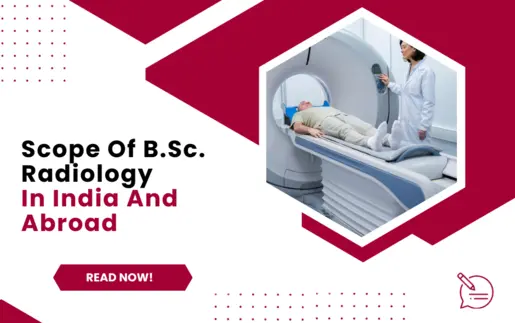Is a B.Sc. Anesthesia and Operation Theatre Technology a Good Course? Pros and Cons Analysis
 Choosing the correct career path can be challenging when so many alternatives exist in the medical industry. A B.Sc. Anesthesia is one such professional option. This blog seeks to clarify if BSc Anesthesia and Operation Theatre Technology is worthwhile by weighing its advantages and disadvantages. This article will assist you in making a well-informed decision if you are considering a career in operation theatre and anesthesia.
Choosing the correct career path can be challenging when so many alternatives exist in the medical industry. A B.Sc. Anesthesia is one such professional option. This blog seeks to clarify if BSc Anesthesia and Operation Theatre Technology is worthwhile by weighing its advantages and disadvantages. This article will assist you in making a well-informed decision if you are considering a career in operation theatre and anesthesia.
Benefits of B.Sc. Anesthesia
1. Growing Demand:
The need for anesthesia specialists is growing due to an ageing population, growth in surgical procedures, and technological advances in medicine. As a result, graduates with great career prospects in anesthesia have a robust job market for operation theatre and anesthesia technology.
2. Crucial Function:
Any surgical operation requires anesthesia, which plays a crucial role. In order to ensure patient comfort, pain management, and safety during surgery, anesthesia professionals are essential. By pursuing a BSc Anesthesia and Operation Theatre Technology, you can join a healthcare team directly contributing to saving lives and enhancing patient outcomes.
3. Diverse job Possibilities:
Earning a BSc Anesthesia and Operation Theatre Technology opens up a number of job options. You can find employment at healthcare facilities such as hospitals, surgical centres, emergency rooms, and intensive care units. You can also pursue additional specialties in disciplines such as paediatric anesthesia, cardiac anesthesia, or pain management. Thanks to your adaptability, you can investigate several areas of interest within the anesthetic sector.
4. Practical Experience:
Clinical rotations and hands-on training are typically included in anesthesia programmes. This hands-on training lets you use theoretical knowledge in practical situations, improving your abilities and self-assurance. You'll learn to work under pressure, make important decisions, and improve your interpersonal and communication abilities.
5. Competitive Salary:
Anesthesiologists are paid handsomely for their knowledge and the importance of their work. Most people in this industry make above-average salaries, which offers financial security and room for advancement.
Cons of the B.Sc. Anesthesia and Operation Theatre Technology
1. Strict Training:
Earning an operation theatre and anesthesia technology licence demands commitment, determination, and hard work. The training, which includes topics like anatomy, pharmacology, physiology, and anesthesiology, can be challenging. The curriculum requires much study time, hands-on experience, and clinical rotations, which can be emotionally and physically demanding.
2. High Responsibility:
Anesthesiologists are heavily responsible for treating patients during surgery. The decisions and actions taken by patients may have a direct impact on their outcomes. This high degree of responsibility requires strong attention to detail, critical thinking abilities, and the capacity to remain calm under pressure.
3. Long Workdays:
Working as a professional in anesthesia frequently entails lengthy and unpredictable hours. Surgery can occur at any hour, even on weekends, holidays, and at night. Your ability to combine your job and personal obligations may be compromised if you work shifts or are required to be on call.
4. Ongoing Education:
The domains of medicine and healthcare, including anesthesia, are always changing. Professional development and continual learning are essential for anesthesia specialists to stay current with new developments and methods. This dedication to lifelong learning may necessitate attending conferences and workshops and remaining current on the latest findings and best practises.
Admissions Open for BSc Anesthesia and Operation Theatre Technology
Admissions open for BSc Anesthesia at CGC Jhanjeri. The CGC Jhanjeri BSc Anesthesia programme was created to give students a strong foundation in anesthesia and critical care techniques. Anatomy, physiology, pharmacology, anesthesiology, surgical techniques, medical crises, and patient care are just a few topics covered in the programme. Students acquire theoretical knowledge and practical abilities through classroom lectures, laboratory exercises, and practical clinical training.
In conclusion, your interests, aptitude, and personal objectives will determine whether BSc Anesthesia is a good programme for you. The industry offers enticing job opportunities, competitive pay, and the fulfilment of helping to improve patient care. However, it necessitates commitment, diligence, and the capacity to work under pressure. A BSc in Anesthesia can be a fruitful decision if you have a strong interest in medicine, value critical thinking, and are interested in anesthesia. Before choosing your job, don't forget to do your homework and speak with industry experts to gain a thorough understanding.



















